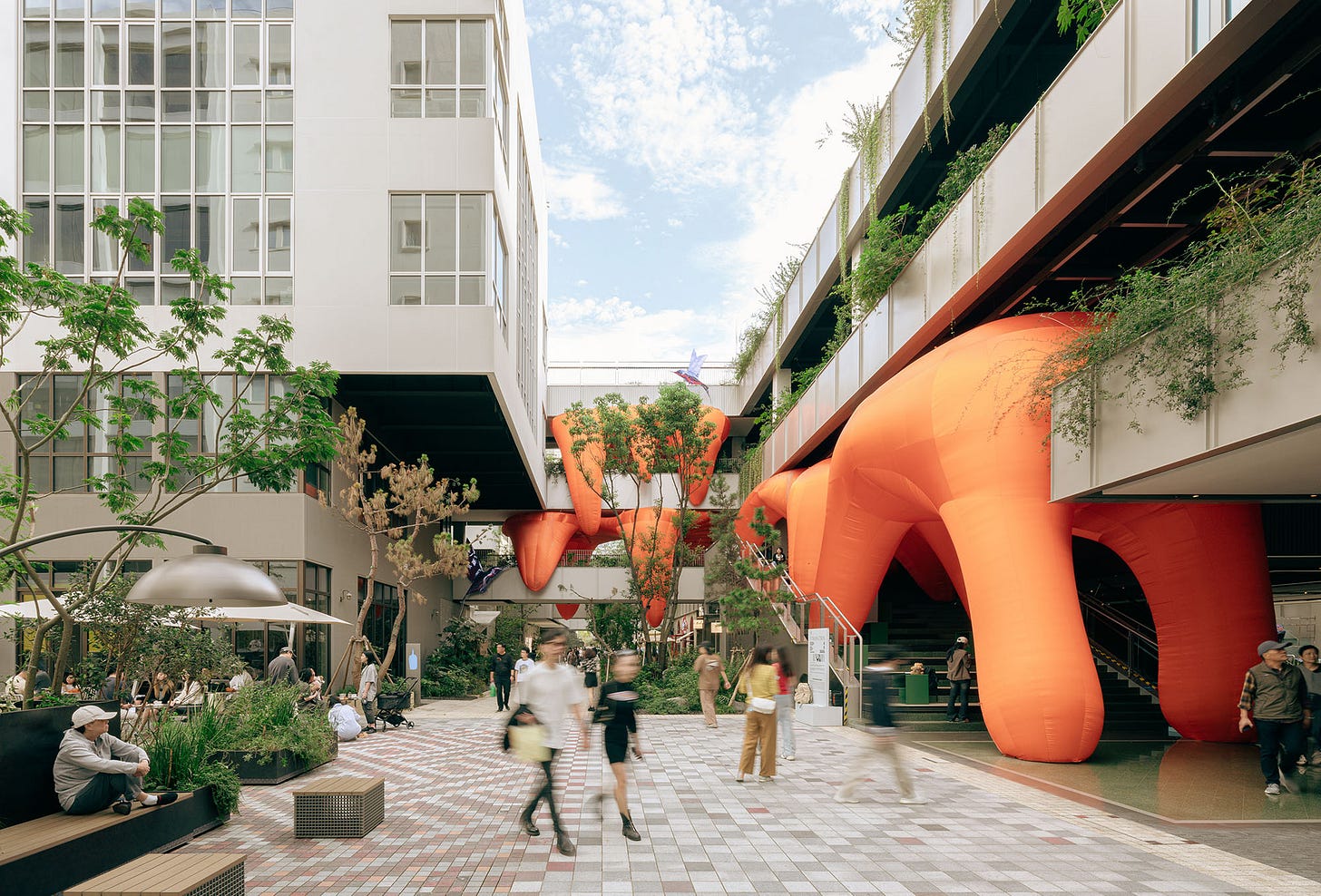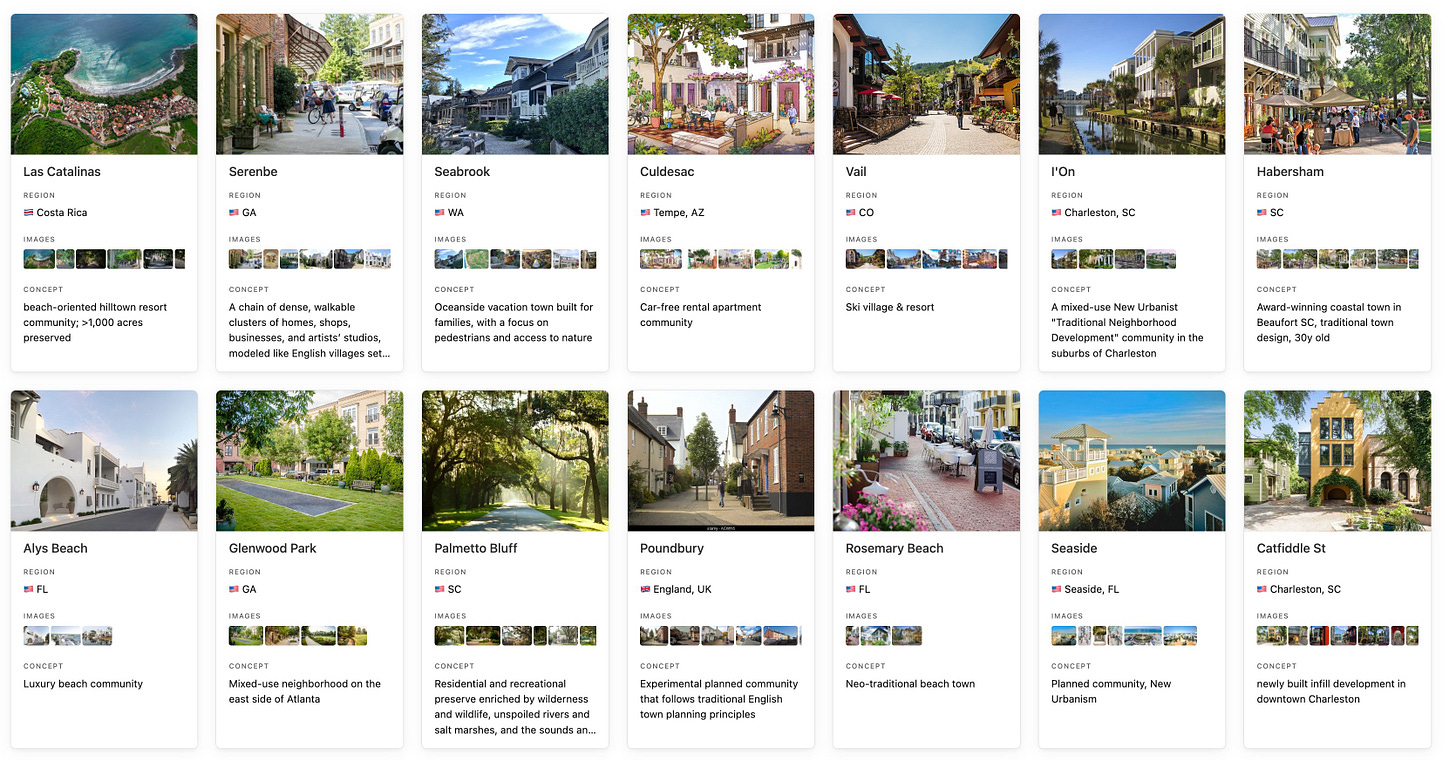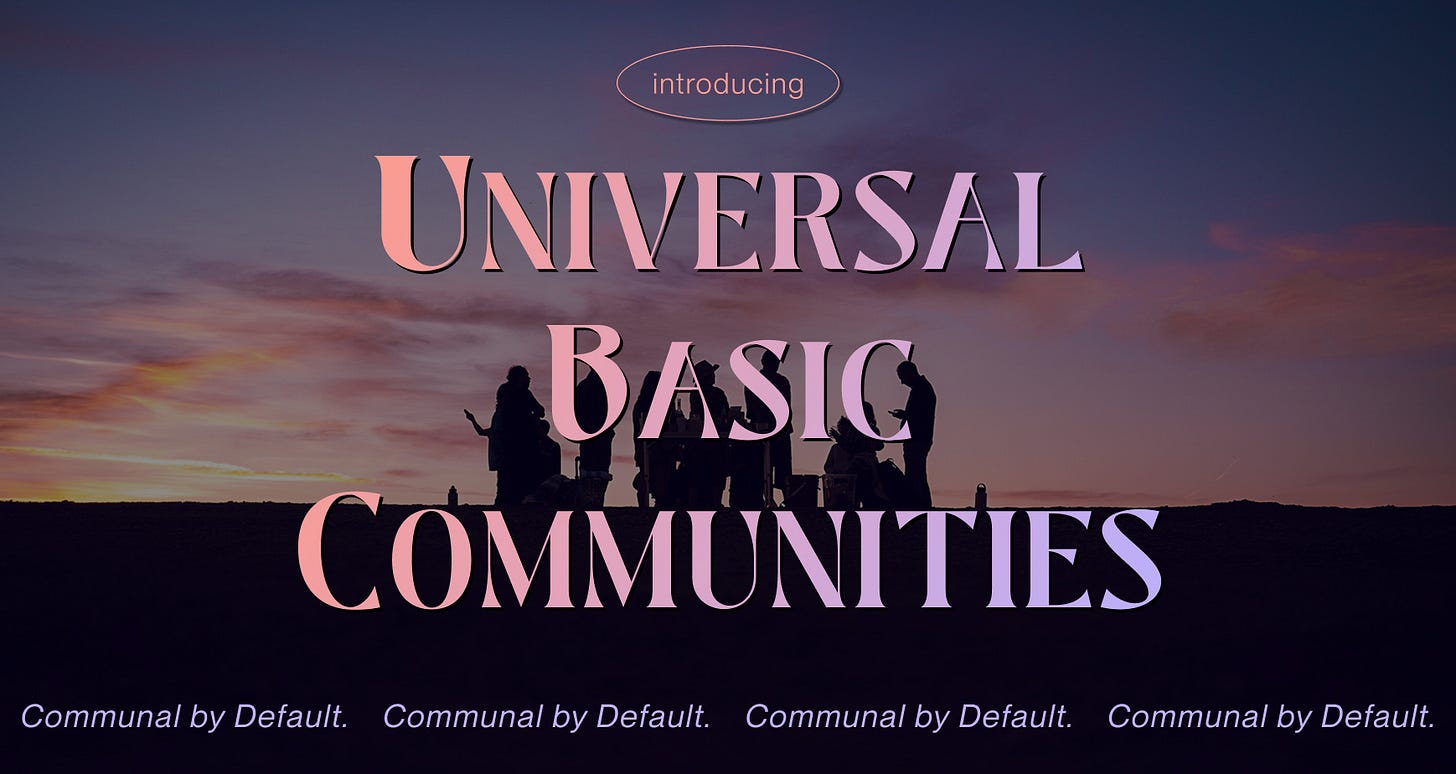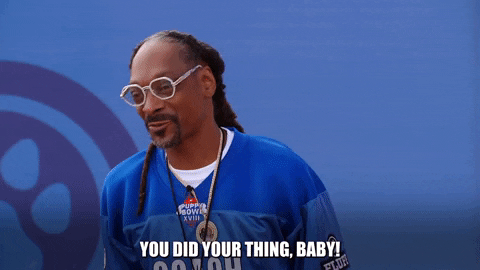Universal Basic Communities
A Life That’s Communal by Default
What if no one ever had to earn the right to belong?
In a world where Universal Basic Income is debated as a way to end poverty, we rarely ask what could end loneliness. What if, in addition to a financial floor, we also guaranteed a social one?
This is the idea of Universal Basic Community — the right to a meaningful home in the world—emotionally, socially, and communally. A vision where nobody falls through the cracks of connection, and where having “your people” isn’t a privilege but a birthright.
I'd love for more people to be able to walk out of their homes and just 'run into' a community they happen to love.
The 'Default Friction' of Gathering
I went on a sunset walk—on one corner, our friend K and her crew were driving by, shouting my name out the window with joy. On the other side, Paul and his dog waved as they passed. Further down, a group had set up speakers by the beach, dancing as the sky melted into that iconic pink gradient California dream.
Later that night, a friend at Sunflower Lab said over dinner, “Having a great community makes life better in so many ways, no matter where you are.” And it hit me — not just how rare it is to find community like this, but how frictionless it felt. I didn’t have to schedule a meetup or fight traffic. It just happens, and it keeps happening! That ease is something we rarely talk about.
In most cities, connecting with people takes work. After a long day at a 9 to 5, we’re drained, and the idea of commuting 30 minutes to see friends feels more like a task than a joy. Parking, timing, coordinating—it becomes a logistical puzzle. Even when we crave connection, it often competes with the time we need for rest and self-care. We’re stuck between isolation and burnout, feeling like we have to earn our social lives.
Mark Fisher, in Capitalist Realism, puts it bluntly: late capitalism doesn’t just cause social alienation—it gaslights us into thinking it’s our fault. Loneliness becomes a personal failure rather than a symptom of a system that has eroded community, meaning, and care.
The U.S. Surgeon General, Vivek Murthy, has called loneliness a national epidemic, comparing its health impact to smoking 15 cigarettes a day.
Social connection is a fundamental human need, as essential to survival as food, water, and shelter.
In modern societies with material abundance, we are frequently experiencing relational poverty —a systemic scarcity of belonging. In our pursuit of financial capital, we’ve neglected the other forms of wealth that actually make life meaningful. As Sahil Bloom puts it in Five Types of Wealth:
Wealth is not just what’s in your bank account—it’s also in your relationships, your health, your knowledge, and your sense of belonging.
Yet we have no social norm—let alone infrastructure—that tells us to prioritize our communities.
But maybe it’s time we create one.
Designing for Universal Basic Communities
How can we design lifestyles for default connection—physical spaces, group rituals, and governance systems that make it easier to be together than to be alone?
This isn’t a utopian fantasy—we’ve already seen glimpses of it: mutual-aid networks during the pandemic, co-living homes, Burning Man camps, artist residencies, small towns, and even group chats that feel more like home than our hometowns.
Urban theorist Jane Jacobs emphasized this decades ago in The Death and Life of Great American Cities, where she argued for urban planning that prioritizes natural, serendipitous encounters. Sidewalks, stoops, and shared courtyards aren’t trivial—they’re the social infrastructure that makes a neighborhood feel alive.
One thing I miss about Shanghai is the abundance of public infrastructure for emergent communal gatherings, I would totally write a seperate article just on that. Here’s an image about ‘上生新所‘, a newly built third-space public square garden filled with unique botiques, cafes. I’m always surprised to see the amount of people hanging out at this space, families, fashionable young people, elder ladies with dancing clubs… just a lovely place for communities thrive.

New City Projects and Resources
There are definitely more to building ‘UBC’ than public infrastructure, and there are many ways to do it — loving nuclear families, religious groups, coliving…
It’s exciting that there is a new wave of city-making projects picking up where Jacobs left off. From Culdesac in Arizona to the Esmeralda Project, we’re seeing serious attempts to reimagine how space can support connection.
Devon Zuegel, founder of Esmeralda, compiled this incredible list of real towns and villages that have been designed—intentionally or not—to foster human-scale living and deep community.

There’s a growing ecosystem of projects explicitly building toward Universal Basic Communities. Some of my favorites include:
🌐 Agartha Map – Yes, I’m biased, because I made it. It’s a platform highlighting projects and places building toward UBC.
🏠 Fractal NYC – A warehouse in Bushwick offering its residents a form of solid “default community”
🧠 Supernuclear – The leading publication exploring the emerging science, dynamics, and design of coliving ecosystems.
🚀 Edge City – A society incubator hosting month-long pop-up cities and unconference that blends coliving, coworking, play, and network-building into one living prototype of what UBC could feel like. (Seriously, it’s so fun, come say hi to me at the next event)
All over the world, people are realizing this lack of convenient, frictionless ‘universal basic’ communities, and they’re doing something about it. This movement is soft, slow but definitely happening — let's water these seeds, learn from them, share the blueprint, join, and really, enjoy them!
Thank you!
Thank you for reading what I have to say. A recent deep dive into some creative work' philosophy and being grilled by GPT is pushing me to share more of my thoughts publically. So……. expect more articles, more often.
Until next time ;)






Loving all of this 🫶